GENERAL SITUATION IN MEXICO
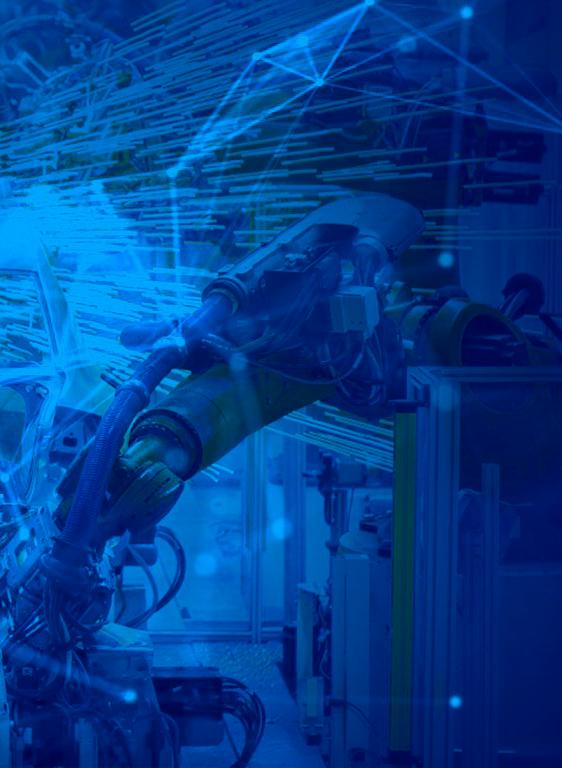
Weekly Review I July 3, 2024



Weekly Review I July 3, 2024

Francisco Gonzalez Diaz, Executive President of the National Auto Parts Industry (INA), anticipates Mexico’s automotive industry production value to increase by 4% to 7% in 2024, reflecting consistent growth averaging US$2.7 billion annually over the last decade. Emphasizing the need for skilled labor, clean energy, and legal stability, Gonzalez highlighted Mexico’s role as the leading U.S. auto parts supplier and projected the country’s auto parts production to exceed US$126 billion by year-end. He also noted significant growth expectations in Mexico’s aftermarket sector, exceeding US$30 billion, driven by rising service demands, electric vehicle trends, and nearshoring opportunities. Gonzalez announced upcoming industry events focusing on digital commerce and supply chain transformation, underscoring Mexico’s strategic importance in the automotive market.
SOURCE: MEXICO BUSINESS NEWS
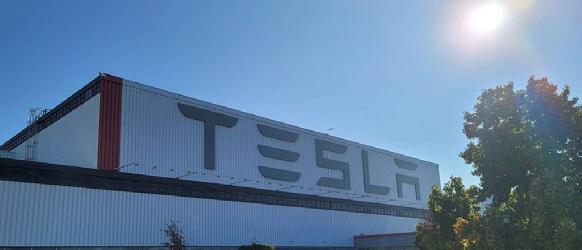
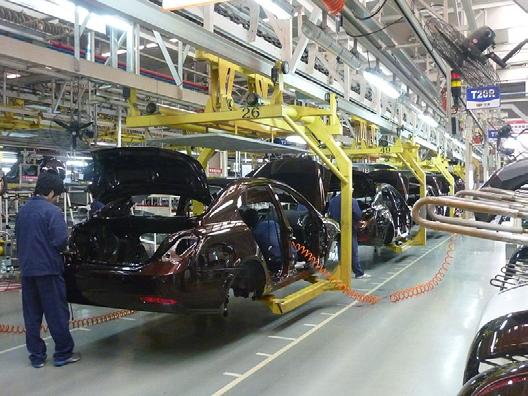
Tesla has resumed hiring in Mexico after a two-month pause, alongside similar efforts in 23 other countries. The company is focusing on filling roles for its upcoming gigafactory in Nuevo Leon, Mexico, with current openings in sales and customer service across various regions. This decision follows recent shareholder approval of Elon Musk’s compensation plan and Tesla’s relocation of its headquarters to Texas. The hiring freeze was initially prompted by challenges in early 2024, including factory closures and disruptions. Tesla’s investment in Mexico is part of a larger project expected to create 5,000 jobs and begin vehicle production by 2026.
SOURCE: MEXICO BUSINESS NEWS
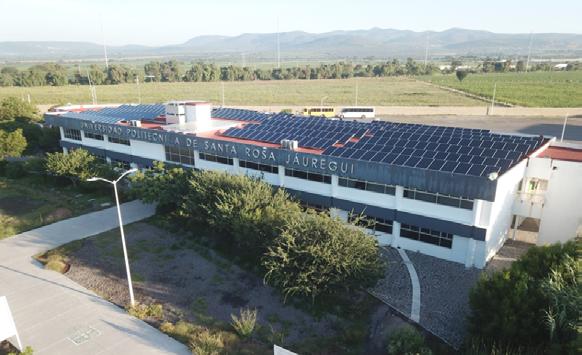
The Universidad Politecnica de Santa Rosa Jauregui (UPSRJ) has inaugurated an Innovation and Electromobility Laboratory aimed at researching and developing electric vehicle technologies. Led by Marco Antonio del Prete from SEDESU Queretaro, the initiative focuses on educating students in electromobility and fostering innovation in transportation. The lab supports state policies on emission reduction and aims to advance knowledge in electric vehicle systems, materials, and high-efficiency mobility technologies, reflecting effective collaboration between academia, industry, and government.
SOURCE: MEXICO INDUSTRY
Boeing plans to acquire Spirit AeroSystems for $4.7 billion, reuniting with its former subsidiary to address production challenges and scrutiny. Spirit, a key supplier for Boeing’s aircraft components, including 737 and 787 fuselage panels, has faced quality issues impacting Boeing’s operations. The acquisition aims to enhance manufacturing control and safety standards, integrating Spirit’s capabilities closely with Boeing’s. The deal involves exchanging Boeing stock for Spirit shares, with terms tied to share price performance. Boeing also intends to collaborate with Airbus on acquiring relevant Spirit assets. The transaction, pending regulatory approval, is expected to close by year-end.
SOURCE: MEXICO BUSINESS NEWS
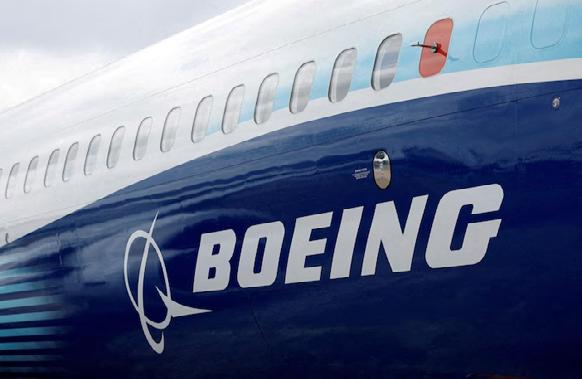
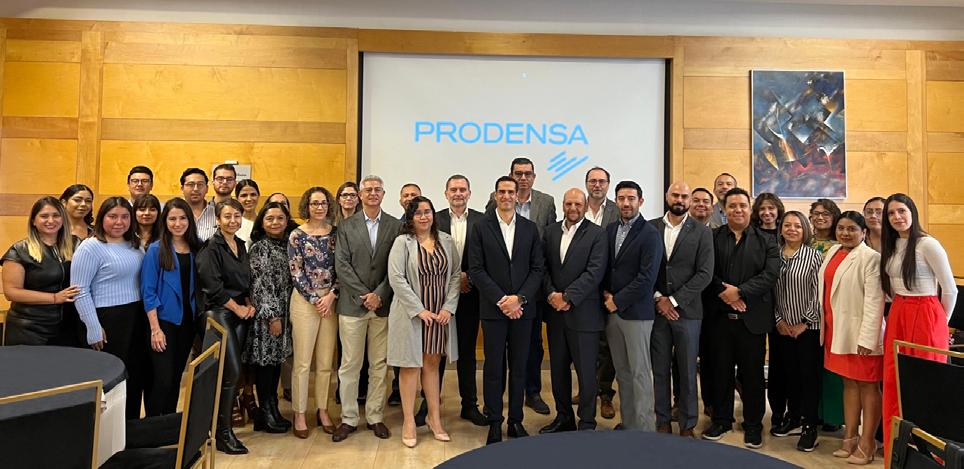
Prodensa in collaboration with Index Queretaro organized a business networking breakfast where Marco Kuljacha, President and partner of Prodensa and Kurt Schmidt VP of Consulting of Prodensa were speakers talking about different topics relevant to the industry. Topics discussed included supply chain challenges and opportunities and the socio-political situation in Mexico and the impact it has on the industry.
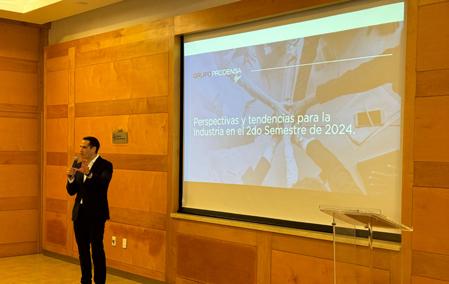
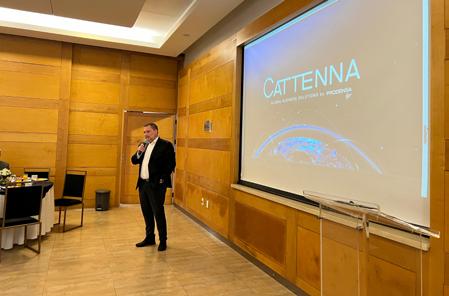


In December, Navojoa will commence an ambitious project aiming to transform southern Sonora with a mega-industrial park, starting with an initial investment of $1.6 billion. The first phase will cover 70 hectares and involve five confirmed companies. Federico Llamas, president of the National Chamber of Commerce (Canaco) in Navojoa, emphasized the project’s scale and its potential regional impact, predicting it will create around 10,000 jobs initially and stimulate economic growth. The main investor behind the project is entrepreneur Juan Ignacio Torres Landa. This development is expected to bolster local economy and provide diverse job opportunities, fostering optimism within the community about its long-term benefits.
SOURCE: MEGANOTICIAS
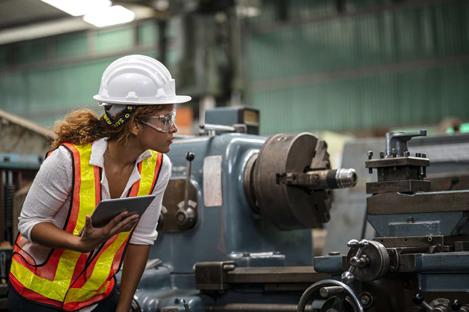

Carlos Jaramillo Silva, president of the Business Coordinating Council (CCE) in Tijuana, reported that 20% of Baja California’s industrial sector has been adversely affected by recent tariff increases. These tariffs were imposed due to violations by some companies misusing import permits. Industries, including those producing flatscreen TVs, are particularly impacted by specific tariffs affecting essential components. Jaramillo Silva highlighted ongoing efforts to assess and mitigate these impacts through collaboration with the Ministry of Economy and Innovation. He also noted successful negotiations that resulted in the repeal of tariffs on aluminum, benefiting local industries significantly.
SOURCE: INDUSTRIAL NEWS BC

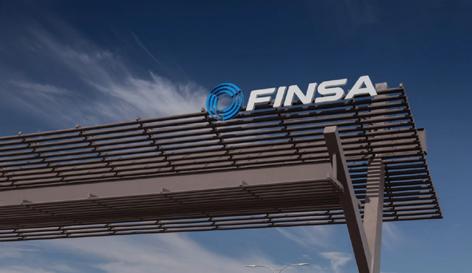

FINSA, a developer of industrial parks, announced the development of its fifth industrial park in Nuevo Leon, named FINSA Monterrey Apodaca II. Spanning up to 79 hectares and to be completed in two phases, it aims to accommodate 20 companies from various industries, potentially generating 35,000 direct and indirect jobs. Located in a prime industrial corridor with robust infrastructure and direct access to the US border, the park emphasizes sustainability with features like water treatment plants, solar panels for common areas, and a 20 Megawatt electrical substation. Sergio Argüelles, FINSA’s CEO, expressed commitment to Mexico’s industrial growth through infrastructure that attracts global companies and fosters job creation in sustainable environments.
SOURCE: EL ECONOMISTA

Thor Urbana, a specialized firm in real estate development and investment, has acquired nine industrial properties in Saltillo and Ramos Arizpe, Coahuila, totaling over 1.6 million square feet of leasable area. This acquisition aims to strengthen its presence in response to the high demand for industrial properties in northern Mexico driven by nearshoring. The move aligns with Thor Urbana’s strategy to enhance business networks in the manufacturing and logistics sectors, leveraging the regions’ benefits from nearshoring and foreign direct investment from American, Canadian, European, and Asian companies manufacturing in Mexico. The expansion into the industrial sector complements Thor Urbana’s portfolio of over 2.7 million square meters across various strategic locations in Mexico, reinforcing its position as a leading real estate company in the country.
SOURCE: EL ECONOMISTA


McAllen and San Luis Potosi have signed a binational work scheme to maintain commercial and industrial ties, marking a decade of collaboration. The sisterhood between the two cities began in June 2014 with a shared vision to connect communities and enhance international competitiveness. The McAllen Economic Development Corporation (MEDC) played a prominent role in the event, with representatives from the McAllen Chamber of Commerce highlighting growth opportunities in manufacturing and logistics. McAllen business representatives held meetings with local companies, including BMW Group, to explore new collaboration opportunities and strengthen commercial ties. By reaffirming the sisterhood, new pathways for economic development and international competitiveness are opened, benefiting both cities across strategic areas, particularly in the context of nearshoring.
SOURCE: MEXICO INDUSTRY
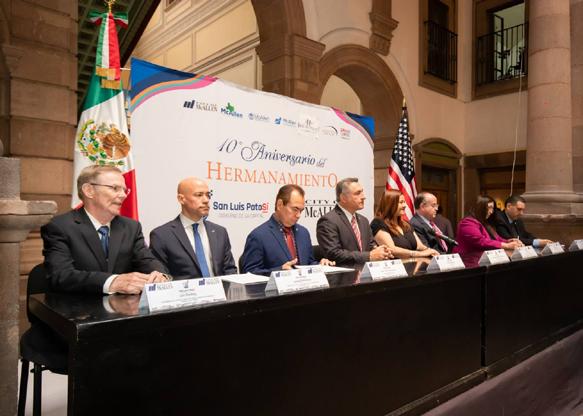



Guanajuato is emerging as a global hub for tire production in the automotive sector, with significant investments and expansions by companies like Aztema (a joint venture involving Sailun and Tire Direct), Pirelli, and Michelin. These developments, including Aztema’s $400 million investment and plans to create 1,400 jobs in Irapuato, underscore Guanajuato’s strategic importance in manufacturing semisteel radial tires. The region’s commitment to innovation, technology, and sustainable development is enhancing its role as a key player in the global automotive industry.
SOURCE: MEXICO INDUSTRY

Eaton is expanding its plant in Queretaro to supply components for new electric vehicle models. This expansion is part of their response to the shift towards electric mobility in manufacturing. Eaton, known for its automotive components, including battery connectors, has integrated advanced technologies and processes to meet evolving industry demands. The company’s growth is supported by the Eaton Business System (EBS), ensuring standardized operations globally. This includes technological integration under Industry 4.0 principles, enhancing production efficiency and quality control. Eaton emphasizes talent development and workplace satisfaction, fostering a diverse and inclusive environment. The company operates under Mexico’s maquila model, leveraging tax benefits for efficient import-export logistics. They are poised to significantly contribute to Mexico’s automotive industry growth with ongoing expansions and sustainable practices through their MESH program.
SOURCE: MEXICO INDUSTRY



Mexico City climbed from 21st to 16th place in Julius Baer’s 2024 Global Wealth and Lifestyle Report due to local currency fluctuations. It’s now the fourth most expensive city in the Americas, surpassing Santiago and Vancouver but behind Miami, Sao Paulo, and New York. Globally, it is more expensive than cities like Bangkok, Barcelona, Frankfurt, and Tokyo. Currency fluctuations played a significant role in these changes, with the Mexican peso depreciating from below 17 to over 18 pesos per dollar after the June 2 election.
SOURCE: EXPANSION

The State Secretariat of Agriculture reports that Mexico holds up to 29% of Latin America’s native corn varieties, emphasizing the need for sustainable projects to support its cultivation and producer development. This was highlighted at the launch of a program aimed at strengthening agribusinesses in the State of Mexico through a collaboration agreement between the state Secretariat of Agriculture and producer organizations. The agreement includes actions for training and alternative technification to revitalize agriculture by providing producers with tools to market their products through new channels, aiming to make them more profitable and innovative. A pilot test with corn, coffee, and honey products will focus on enhancing the training, skills, and capabilities of producers to better integrate them into the food supply chain.
SOURCE: QUADRATIN
With the creation of 60 jobs, Fictiv has inaugurated its first facility in Santa Catarina, Nuevo Leon. This new plant will provide digital manufacturing services to a variety of sectors. No investment amount shared.
The Group announced that it will build a fifth industrial park in Nuevo Leon called “FINSA Apodaca II,” covering an area of 79 hectares where up to 20 companies from various industries can be established.
Google will install its third Data Center in Latin America in the Queretaro, the first cloud region expected to be operational in 2025. The location and the investment amount are still confidential. However, it will serve to offer Google’s services from the entity.
SOURCES: MEXICONOW, CLUSTER INDUSTRIAL
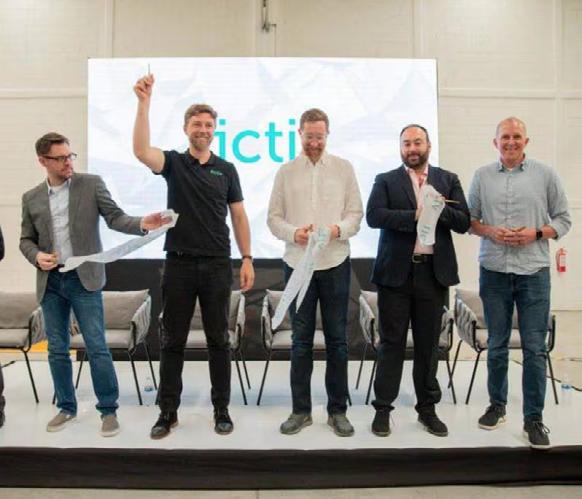
• INITIATIVE BEFORE THE CONGRESS OF THE UNION TO ADD ARTICLE 133 BIS TO THE FEDERAL LABOR LAW
Presented by: Local Representative Tabita Ortiz Hernandez (NL - MC)
Purpose: Prohibit employers from eliminating attendance and punctuality bonuses or deducting vacation days from workers who cannot attend work due to natural disasters. These bonuses must be paid as if the workers had attended work normally.
Workers affected by the natural disaster will not be required to make up for lost work hours, but they may do so if they wish to be paid for the day.
Status: 2024-07-01 - Initiative referred to the Committee for review.


• SAN LUIS POTOSI: DECREE AMENDING THE TRANSITIONAL ARTICLE OF DECREE 1050 PUBLISHED IN THE STATE OFFICIAL GAZETTE
Presented by: Local Representative Roberto Ulises Mendoza Padron (SLP - PVEM)
Purpose: The implementation of the Tax on the Emission of Pollutant Gases into the Atmosphere is postponed, with the new date set for January 1, 2025.
Status: 2024-07-01 - Published in the Official Gazette
Explore our latest blogs and stay updated with valuable insights! Visit our website today: www.prodensa.com
TURNKEY OPERATIONS: WHAT IS INSHORING?
Inshoring is an operations model from Prodensa for operating in Mexico in the most risk-adverse way.
Key Takeaways:
• What is it? Inshoring is a pre-existing launchpad in Mexico, allowing U.S. companies to start manufacturing quickly through Prodensa’s expertise
• How does it work? Prodensa acts as your local partner, handling everything from import/export to regulatory compliance. You choose the location and maintain full control over production and quality
• What are the benefits? Inshoring is the most risk-adverse way to manufacture in Mexico. It is also the fastest since the operational entity is pre-existing and pre-certified.
• What are some limitations? The operational entity is shared with other companies, so there is no possibility to take over the ownership of the entity.
Want to learn more? Read the full blog or reach out for a one-on-one meeting.
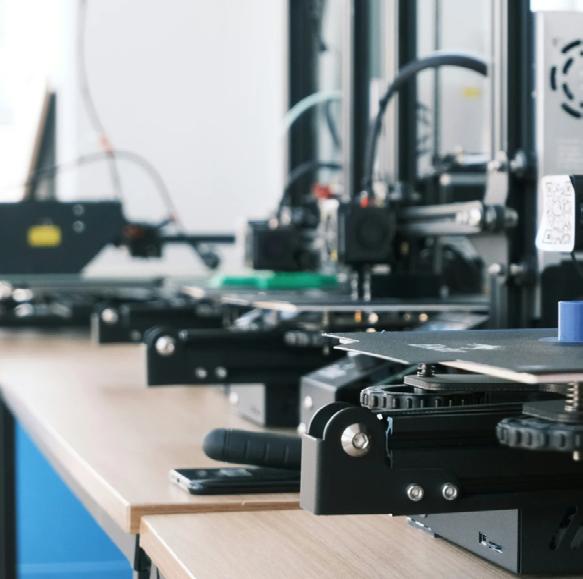
This blog post, part of the Nearshoring Series, summarizes key takeaways from recent discussions on nearshoring. The focus is on the importance of adhering to rules of origin and compliance, especially in the USMCA context.
Key Points:
• USMCA and Rules of Origin: The USMCA establishes a framework for North America as a manufacturing hub, particularly for electric vehicles and semiconductors. Companies operating within this region must comply with specific rules of origin to benefit from trade agreements.
• China’s Investments: Growing concerns surround Chinese investments in strategic sectors like technology and communication. The US and Mexico have imposed tariffs to protect regional markets.
• Balancing Act: While Chinese investments offer economic benefits, national security and technological innovation require careful consideration.
• Transparency Matters: Clarity and transparency in business operations and government relations are crucial for China’s participation in the North American market. This principle is reciprocal, expecting other countries to respect Chinese regulations when investing there.
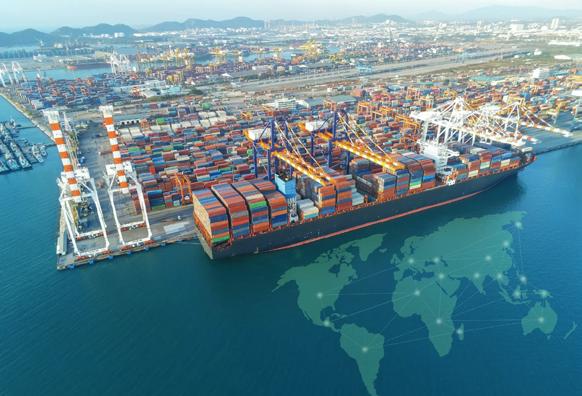
The Future of Trade:
We are entering a new era of international trade, with a focus on managing foreign investments, particularly from China. Strategic discussions aim to balance economic openness with national security interests.
Conclusion:
Adapting to these changing dynamics, adhering to rules, and promoting transparency will define success in the modern era of international trade.